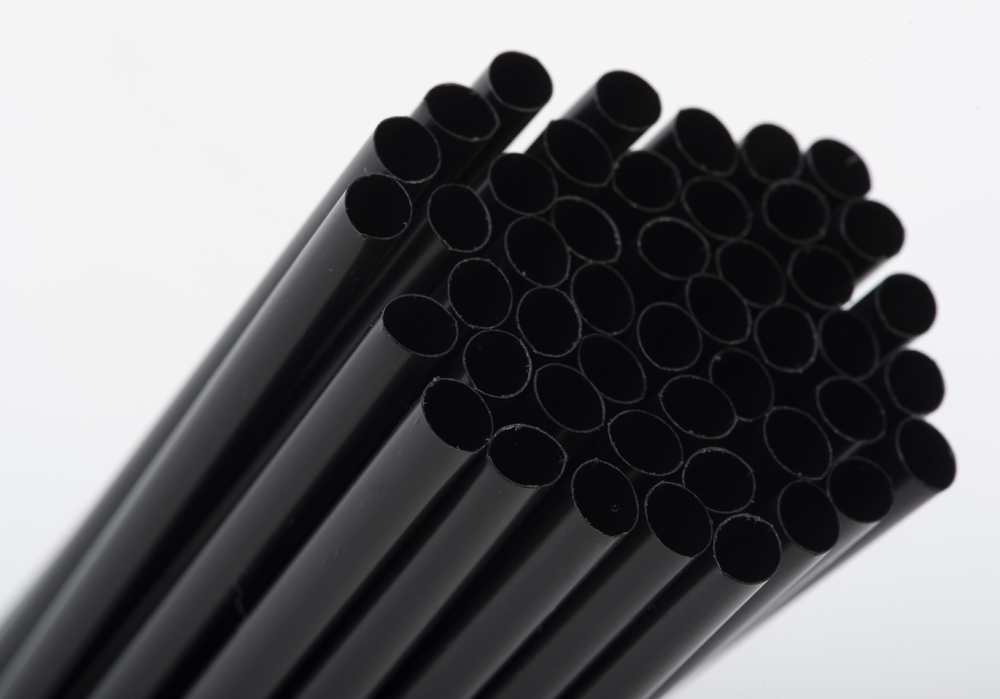Plastic straw use and plastics, in general, are a serious problem. Plastic straws are one of the top 10 items found during beach cleanups, according to the Ocean Conservancy. The use of plastic straws is a serious problem because plastics are a major source of pollution. Plastic straws are also a danger to marine life, as they can be mistaken for food by turtles and other animals.
The good thing is, we can all help reduce our reliance on plastic disposable straws. By making small changes in our habits, we can make a big difference in the health of our planet.
Composition of Plastic and Plastic Straws
Plastic is a synthetic material that has a wide range of properties, making it one of the most versatile materials in the world. It can be moulded, extruded or cast into nearly any shape imaginable, making it ideal for everything from packaging to construction.
The type of plastic produced depends on the type of hydrocarbon used, the size of the molecules and the temperature and pressure used during production. The most common types of plastic are polyethylene, polypropylene, polystyrene and polyvinyl chloride or PVC.
Plastic disposable straws are made from a variety of different plastics, but the most common type is polypropylene. Polypropylene is a lightweight, durable plastic that is resistant to both heat and cold. It is also relatively inexpensive to produce, which makes it an ideal material for straws.
How Do Plastic Straws Impact the Environment?
Whilst plastic straws are convenient and easy to use, they can pose a serious threat to the environment. Straws are one of the most common forms of marine litter and can cause serious harm to marine life if they are not disposed of properly.
When plastic disposable straws end up in the ocean, they can be mistaken for food by turtles, fish and other marine animals. Once ingested by marine animals, plastic straws can block their digestive tracts, causing starvation and death.
Plastic straws also contribute to ocean pollution. As they break down, they release harmful chemicals into the water that can adversely affect plant and animal life. When plastic breaks down into small pieces, it can absorb toxins like dichloro-diphenyl-trichloroethane and polychlorinated biphenyls. These chemicals can then work their way up the food chain, eventually ending up in humans. Exposure to these toxins can cause a variety of health problems in humans, including cancer, birth defects and impaired development.
How Can You Reduce Your Use of Plastic Straws?
There are various types of straws that are environmentally friendly and harmless to marine animals and humans.
Alternative Straws: The Best Options for the Environment
How can we reduce the use of plastic straws? The answer is eco-friendly straws. Each type has unique benefits that make it a great choice for those looking to ditch plastic straws.
Compostable Straws
Compostable straws are eco-friendly, biodegradable plastic straws made from renewable materials, such as corn starch or rice husks, and will break down in a commercial composting facility. When choosing compostable straws, be sure to check that they are certified compostable.
Bamboo Straws
Bamboo straws are a great eco-friendly option as they are 100% biodegradable. They are also incredibly strong, making them perfect for smoothies and thick drinks. Bamboo straws can be reused over and over again and will eventually break down naturally in your compost bin.
Metal Straws
Metal straws are another great option as they can be reused multiple times. The eco-friendly straw is also extremely durable and won’t break as plastic straws can. Metal straws are perfect for those who like to drink their beverages on the go as they can easily be thrown in a purse or backpack.
Silicone Straws
Silicone straws are a great alternative to plastic straws as they are made from a safe, non-toxic material. They are also collapsible, making them easy to take with you on the go. Silicone straws are dishwasher safe and can be reused multiple times.
5 Ways to Reduce Plastic Use
• Bring Your Reusable Straw
The easiest way to minimise the use of plastic is to bring your own reusable, compostable plastic straws with you. There are lots of different kinds of reusable, eco-friendly straws. Some can even be folded up so you can carry them around with you easily.
• Say No to Plastic Straws
Oftentimes, straws are unnecessary because you can easily drink from a cup. By saying no to plastic straws, you’re sending a message that you care about the planet and want businesses to do better when it comes to sustainability.
• Educate Others About Plastic Straw Usage
One way to help reduce the number of plastic straws being used is to educate others about its impact. Talk to your friends and family about the issue.
Write letters to businesses asking them to stop using plastic straws or switch to a more sustainable option. Getting involved with environmental activities also encourages others to do their part in solving it.
• Support Environmentally Conscious Businesses
Many businesses are beginning to reduce their reliance on plastic straws, and there are a few ways that you can support them in this effort. You can purchase reusable straws or patronise those that have switched to paper or bamboo straws. Spread the word about businesses that are making an effort to encourage other businesses to follow suit.
Bonnie Bio: Sustainable Compostable Packaging in Australia
Looking for a sustainable and compostable, compostable plastic straws or packaging option?
Bonnie Bio offers a range of sustainable, compostable packaging products, including compostable straws that are made from plant-based materials. Our products are environmentally friendly and perfect for cafes, restaurants and other businesses that want to do their part in reducing environmental waste.
Check out our range of compostable products and begin contributing to an earth-friendly use of straws today.

